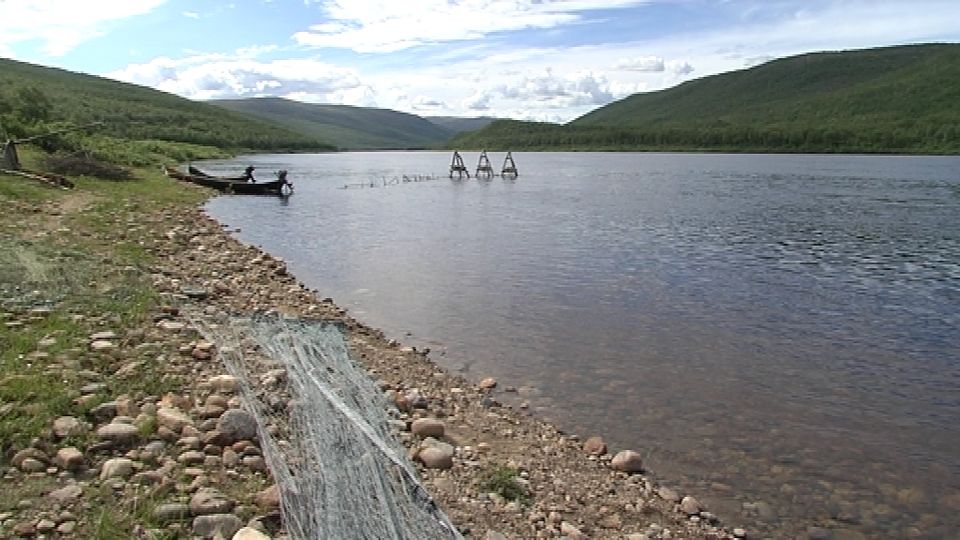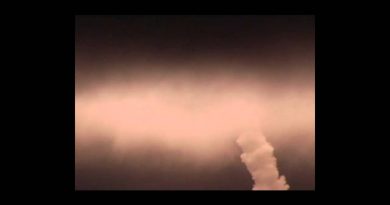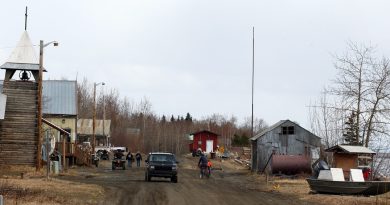Utsjoki residents at odds over Tenojoki salmon fishing restrictions

Salmon fishing disputes that have plagued the Tenojoki river area for decades have risen to the surface once again after hard-line gear restrictions were implemented by Norwegian and Finnish government authorities. Residents of Utsjoki, the northernmost city in Finland, stand sharply divided over the new proposed rules.
The Tenojoki River is known as the Tana River in Norway and just Teno to many locals. It flows along Finland’s northernmost border with Norway through Norwegian Finnmark county and Finnish Lapland.
The 361-kilometre river supports the largest Atlantic salmon stock in the world and is the most productive salmon river in both Finland and Norway. The world’s largest salmon, at 36 kilos, was caught on the river in 1929.
A new fishing agreement was recently introduced to restrict salmon fishing on the river, as both Finland and Norway agree that the salmon stock in the river is overexploited. The agreement aims to reduce salmon mortality in fish catches by 30 percent. The agreement must still be approved by the Finnish Parliament before it can come into effect.
A significant proportion of the proposed legislation targets traditional Sámi net and weir fishing techniques along the section of the river shared by both Finland and Norway and recreational tourist angling on the Finnish side of the border.
The indigenous Sámi people of Lapland have earned a living by catching salmon in the rivers of the Arctic Ocean region for centuries. They traditionally rely on drift net and weir fishery, two gears that have been severely restricted by the new proposals.
A Sámi way of life
Rauna Guttorm, a Sámi, catches salmon at his home on the Tenojoki river with a salmon weir. A weir is an obstruction placed in water to direct the passage of fish. Guttorm says he catches the fish for his children and sisters, as well as for seniors in the village who are unable to catch fish themselves.
He says the new restrictions on drift net fishing would limit the fishing season to two weeks, which would make the time-intensive process of lowering and raising the weir network pointless.
The use of traditional fishing gear like weirs has been scaled back over the decades. Guttorm says that in his childhood in the 60s nets could be in the water for six days a week. Now they are limited to three days, and the new regulation will bring them down again, to two days out of seven. He is of the opinion that the new bilateral agreement offends the Sámi people’s human rights.
“I don’t want to say anything too ugly, but there is no human dignity left in Finland. They’ve gone too far. We are being stripped of our traditional right to be here at Teno through fishing,” he said.
Net restrictions necessary
Tourism entrepreneur Heikki Tuovila has lived in nearby Yläköngäs all his life. He says one drift net captures more salmon than an entire village full of tourists.
“It is important that net fishing is limited because the size of the catches is so much larger than with angling. Angling has to be limited to some extent too because the Teno is overfished. But the permit quota system is too much,” Tuovila said.
He says the new quotas will threaten the tourism industry in the area, and adds that the majority of people with businesses catering to tourists in the area are also Sámi.
Summer home residents angry
Owners of holiday homes in the region have also added their voices to the opposition. Veikko Rintamäki is originally from Seinäjoki, but owns a second home on the banks of the Teno.
“We bought our property legally and the lot included fishing rights. If we can’t use these rights, it is a clear infringement of our fundamental property rights,” he said. He has submitted a complaint to the Chancellor of Justice that seasonal residents of the area were not sufficiently consulted in the preparation of the proposal.
Related stories from around the North:
Canada: Feature Interview: Hunting culture under stress in Arctic, Eye on the Arctic
Finland: Sámi politician calls Finland “racist country”, Yle News
Greenland: What the EU seal ban has meant for Inuit communities in the Arctic, Eye on the Arctic
Norway: Stop romanticizing Arctic development say indigenous leaders, Eye on the Arctic
Sweden: Sami win case for rights to hunt, fish in Sweden, Radio Sweden
Russia: Russia brands Arctic indigenous organization as “foreign agent,” Barents Observer
United States: Alaska Natives rally for restored aboriginal hunting, fishing rights, Alaska Dispatch News



